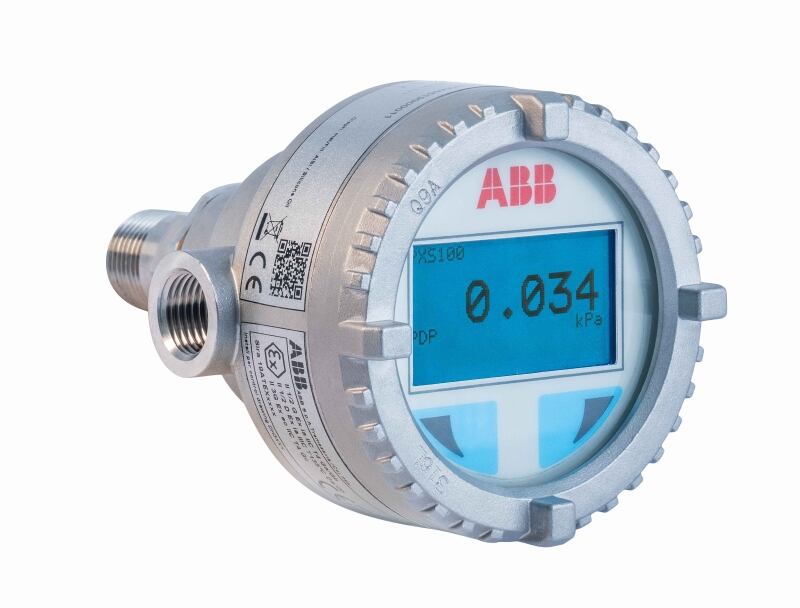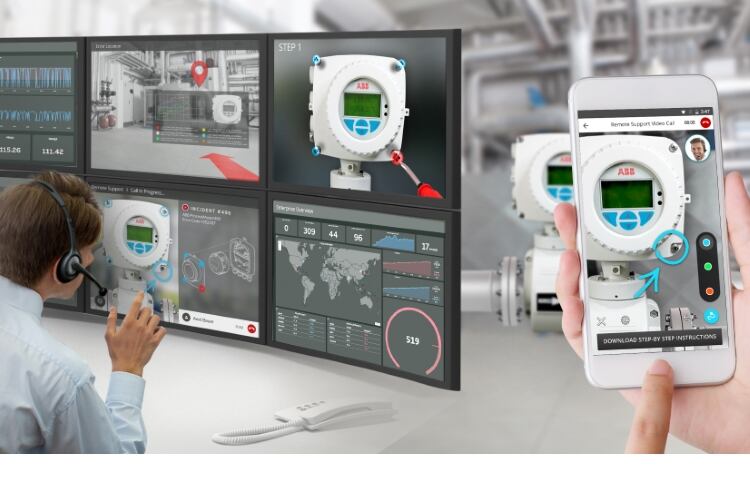Uwe Pohl, industry segment manager for food & beverage, ABB Measurement & Analytics, ABB Automation Products GmbH, told DairyReporter why it’s time to look at new techniques and technologies, including its new PxS100 transmitter, which add up to ‘measurement made easy.’
What are the benefits of digital technology to dairy product manufacturers?
Digitalization, advanced analytics and automation are key to the future success of the food and beverage industry, and dairy product manufacturing is no exception. Digital sensors allow producers to understand what’s happening in a process at a very detailed level which enables them to optimize their processes.
Clearly this results in efficiency and product quality benefits. Knowing what’s happening in a plant also makes it easy to see when maintenance or troubleshooting may be required. Predictive maintenance makes it much easier to avoid unplanned shutdowns and this boosts productivity.

Where can sensors be used in the dairy process?
Measurement and analytics in virtually every aspect of dairy processing is improved by digitalization: temperature, pressure, level and flow.
Some new factories are very well equipped, but there are many older factories in the industry that could benefit from the introduction of sensor technologies. Every aspect of dairy processing is becoming increasingly sophisticated, even the most everyday instruments such as pressure transmitters.
Our PxS100 transmitter, which has just been launched, incorporates features that make it easy to obtain vital information online. If a problem arises, a QR code shown on the display takes the user to a diagnostic page, where they receive suggestions to correct it, as well as details of possible root causes.
What are the key trends in sensor adoption?
Producers are replacing older mechanical solutions with electronic devices to access the benefits of having digital data instantly available. We see three key trends: sensors that permit analysis in real-time at every stage of the process; sensors that enable predictive maintenance and remote servicing; and an urgent interest in the issue of cybersecurity, particularly in connection with product safety.
Can you give some examples and benefits of real-time analysis?
Digital paperless recorders are a good example. They provide a log of exactly what has happened at every point in the process and this is important in terms of product traceability. Coriolis meters produce an instant view of parameters such as density, temperature and flowrate which means that all those parameters can be optimized. This ensures raw materials are used efficiently and generates savings in energy costs.

How easy is it to use data gathered from sensors?
The interface to sensor technology is increasingly user friendly. Dashboards show what is happening inside a process in a way that operators can understand quickly and easily. Ease of installation and ease of use are important, and we develop all our products with that firmly in mind.
You mentioned cybersecurity, how important is that?
Data security is vital, particularly when it comes to traceability and ensuring that nobody can tamper with data. We work with our customers to co-develop powerful security and privacy measures related to a single digital sensor or a whole new production line. Our focus on cybersecurity is intense and uncompromising.
Hygiene is critical in the dairy industry, what role can sensors play?
Sensors reduce human involvement in processes, so that can be beneficial. The materials used in the sensors are also relevant and that’s where regulation and certification are important. All the products we supply to the industry comply with regulations in the countries where they are sold.
Are digital servicing and maintenance increasing in popularity?
Predictive maintenance and remote service solutions are certainly in demand. The global pandemic has made it more challenging for engineers to access production sites, and the trend towards remote service and maintenance has undoubtedly accelerated.
We have seen more dairy processors specifying service products such as ABB Ability Verification for measurement devices, which provides a detailed health-check of instrumentation, and ABB Ability Condition Monitoring for measurement devices, which generates reliable early warnings that recommend maintenance actions and reduce unplanned downtime.
What about when intervention is necessary?
Augmented reality brings a whole new level of remote support. Many aspects of it are very easy to use: a standard tablet device, such as an iPad, provides instant real-time visual and audio access to an expert engineer. Augmented reality enables us to guide a site engineer through commissioning, start-up, and fault finding in unprecedented ways, and there is considerable knowledge-transfer benefit to the customer, too.
What about the future?
We are already working on flexible, sustainable systems that can self-optimize, self-adapt, and run entire processes autonomously. The sophistication of sensors is developing at pace, and the dairy processing industry undoubtedly has much to gain.

